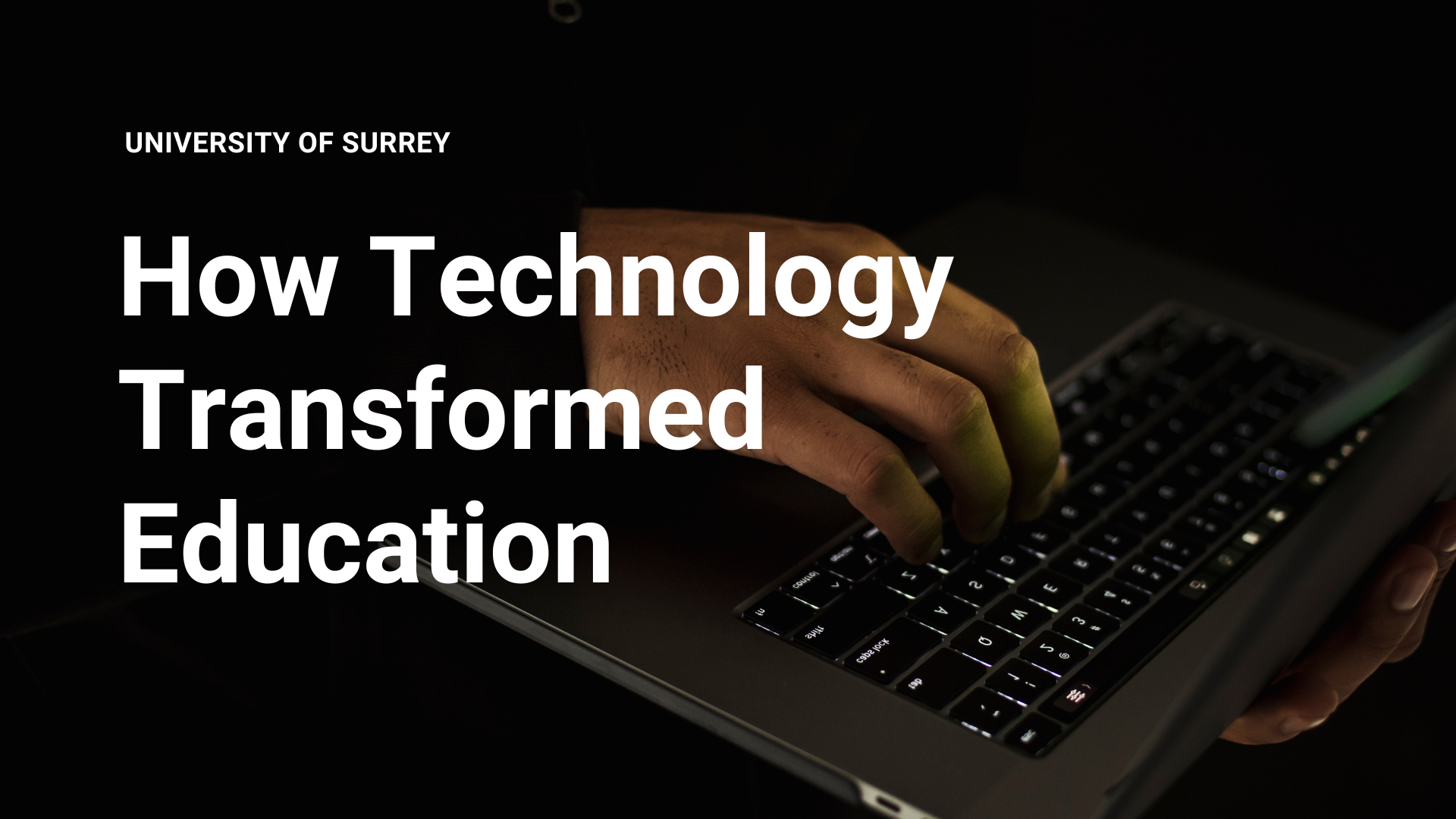“Any sufficiently advanced technology is indistinguishable from magic.” – Arthur C.Clarke

The landscape of higher education is undergoing a profound transformation, driven by rapid advancements in technology. Modern universities are utilising these technological tools and platforms to enhance the learning experience of students globally, streamline administrative processes, and also grant access to education like never before.
- Enhanced Learning Experience: Technology has revolutionised the traditional classroom, offering students with immersive and personalised learning experiences. With the introduction of virtual & augmented reality, educational contents/courses/resources, and job simulations of an existing administrative position through virtual learning environments to understand the underlying intricacies of a certain concept or the fundamentals of that concept, not only is your engagement profoundly boosted, but your understanding of the concept is highly developed as well.
- Data-Driven Decision Making: The integration of data analytics in education is empowering administrators to make informed decisions. Through technology, our decision are based on the available statistics, factors, and possible effect it will have on the community or on a certain group of people, which can be easily obtained through the use of sophisticated machineries, rather than the physical counting of these important piece of information. This helps to optimise resource allocation, enhance curriculum design, and measure the effectiveness of teaching strategies.
- Flexible and Accessible Educational: The presence and access of valuable and important resources for the purpose of education globally through various platforms such as YouTube, Khan Academy, , permits the attainment of personal growth and development across the lives of individuals globally, which has in turn generated an overall satisfaction in terms of attaining knowledge for everyone, irrespective of their region, status or source of livelihood. Through technology, anyone can access information to varieties of courses, fields, concepts and firms globally.
- Administrative Efficiency: Universities are streamlining administrative tasks through technology, thereby reducing the burden on staffs, and enhancing student experience. Automation of routine processes such as grading, admissions and course registration allows universities to operate more efficiently. Additionally, there is a division of labour on the administrative tasks, which also promotes the smooth operation of the administrative processes.
- Future Preparation: As the job market evolves, universities are leveraging technology to equip students with the necessary and vital skills, needed to undertake employment in the industry. From coding and data science to digital literacy, modern curricula are incorporating technological competencies that are essential in today’s workforce. Collaborations between universities and industry partners through internships and placements ensure that relevant concepts and information are being disseminated to the students.
- Skill Application: Through the collaborations and liaisons universities have with firms globally, students are given the opportunity to be taught relevant topics and concepts, pertaining to their course of interest, which have a significant importance in their dream jobs or in the company they wish to work in. Programmes such as placements or internships can be included in your course to apply those skills that have been obtained from the contents of a course at the university. This does not only provide you with real industry experience, but it also hones your skills in the field, and adds more value to your resume.
Bottom Line
The world is constantly evolving into a global village, and having a keen understanding of these relevant and vital information through various technological platforms, that guide the operations of businesses, universities and the general populace is essential. The transformative power of technology in modern universities is reshaping higher education for the better. Technology is not just a tool, but a catalyst for revolutionising education. As universities continue to innovate, they play a crucial role in shaping a more efficient, inclusive, and forward-thinking educational landscape.
